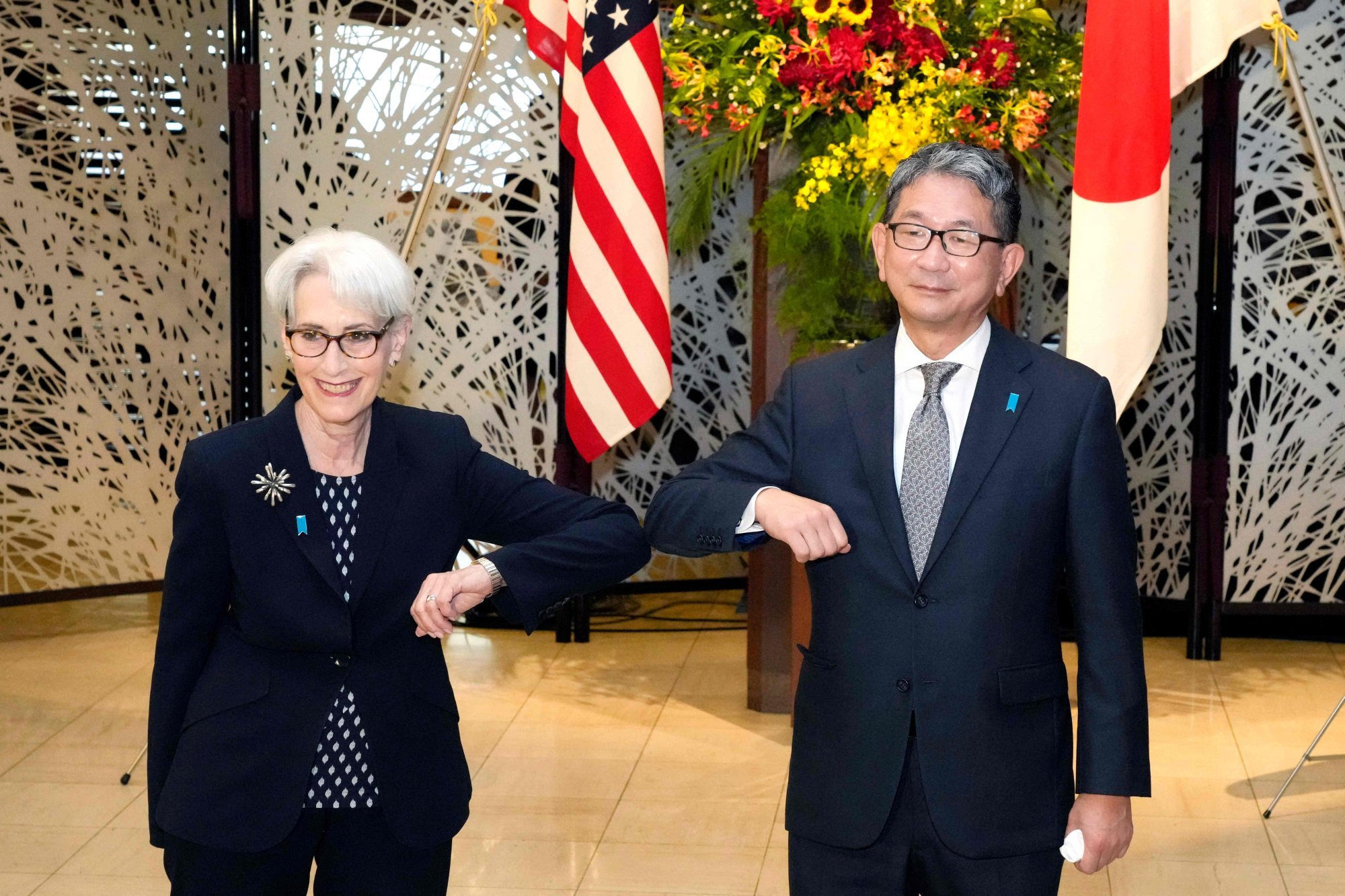
US envoy to meet with Japanese and South Korean counterparts next week in Tokyo
- Deputy Secretary of State Wendy Sherman is to have discussions with deputy foreign ministers about China, North Korea and Russia
- Trip comes as concerns grow that Pyongyang may be preparing for another nuclear weapon test
Washington’s No 2 diplomat will travel to Tokyo next week to meet with her counterparts from Japan and South Korea amid rising tensions with China and North Korea.
The visit by US Deputy Secretary of State Wendy Sherman will come just days after Chinese leader Xi Jinping is expected to grasp an unprecedented third term as the country’s paramount leader at the 20th party congress.
The trip also comes as concerns grow in Washington and elsewhere that Pyongyang, which has conducted a slew of missile tests in recent months, may also be preparing another nuclear weapon test – which would be the country’s seventh.
“We will discuss a range of issues, including the DPRK’s numerous ballistic missile launches this year, the PRC, and Russia’s unprovoked and devastating war against Ukraine,” a senior State Department official said on Thursday, using the acronyms for North Korea and China’s official diplomatic names.

Sherman’s talks with Takeo Mori, Japan’s vice-minister of foreign affairs, and Cho Hyun-dong, South Korea’s first vice-minister of foreign affairs, constitute the fourth regularly scheduled “trilateral” meeting for the deputies.
They last spoke on October 4 after one of the North Korean missile launches, the State Department official said.
Since US President Joe Biden took office nearly two years ago, his administration has repeatedly emphasised that it views its allies as vital to winning the intensifying competition with China.
In its national security strategy released this month, the White House called the US network of allies “the envy of our adversaries”.
South Korea has elected a new president this year, Yoon Suk-yeol, who vowed on the campaign trail to take a harder line against Beijing.
But analysts say it remains unclear just how united South Korea is with Japan and the US in its willingness to confront China, the world’s second-largest economy and Seoul’s own largest trading partner.
After US House Speaker Nancy Pelosi travelled to Taipei this summer – a trip that infuriated Beijing and was followed by large-scale, live-fire Chinese military exercises in the Taiwan Strait – she flew to South Korea but Yoon would not meet with her.
Pelosi met with Japanese Prime Minister Fumio Kishida in Tokyo on the same trip.
“I’m not sure if South Korea really has a coherent strategy,” Sue Mi Terry, director of the Wilson Centre’s Korean history and public policy programme, said at a panel discussion on Thursday.
She added that South Korean public opinion of China has continued to plummet over the last year. Yoon’s approval ratings took a hit when he declined to meet with Pelosi.
“I think it’s something the Yoon administration has to deal with,” said Terry, a former US intelligence analyst. “But I think they’re still kind of on the fence, and I think they need to figure it out.”
On her trip next week, Sherman will also meet with other top Japanese officials in Tokyo, including Foreign Minister Yoshimasa Hayashi, National Security Secretary General Akiba Takeo and Vice-Minister of Defence Atsuo Suzuki, the State Department official said.

